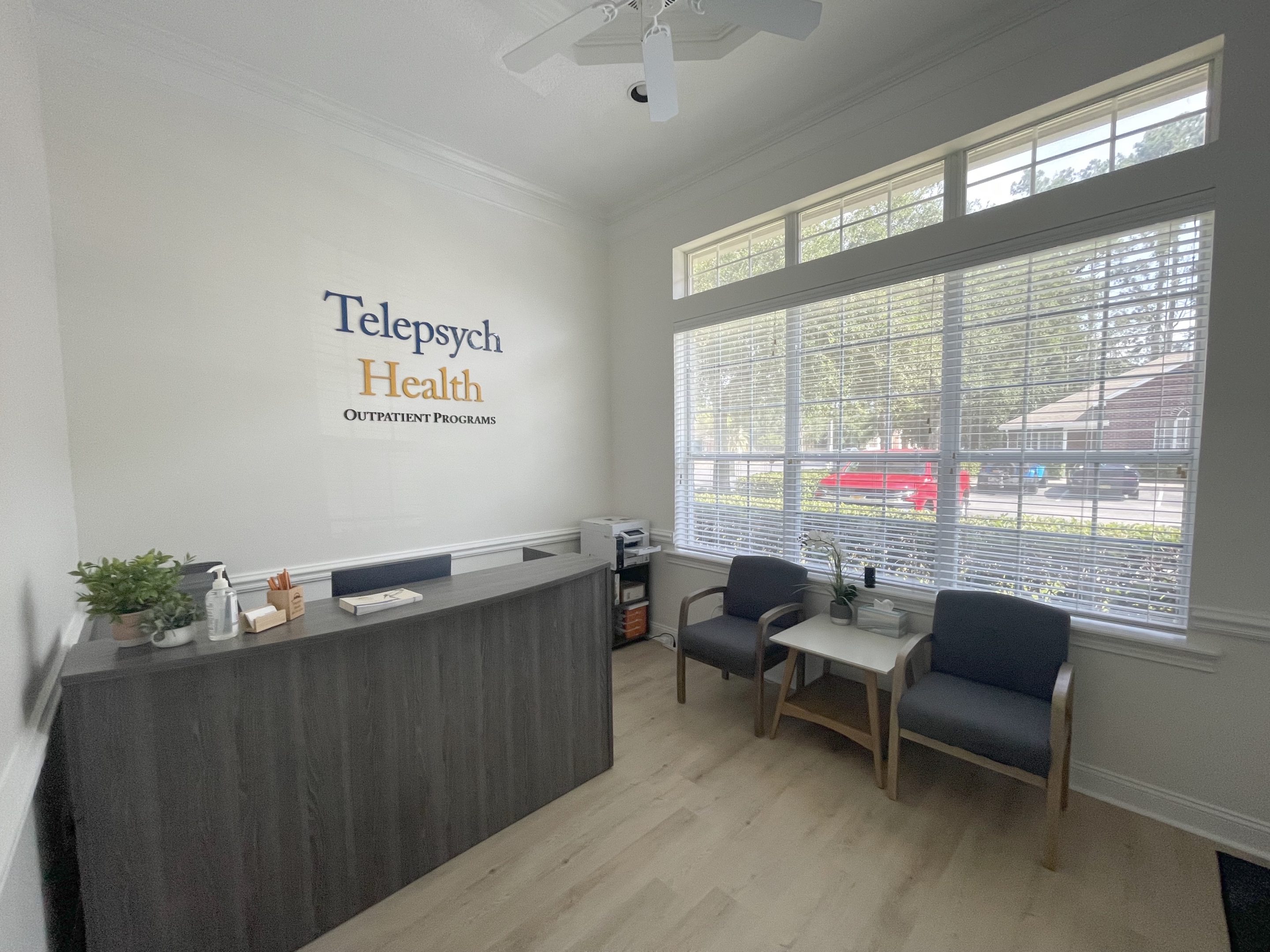Running a private therapy practice can be incredibly rewarding, but it also comes with unique challenges that require efficient time management and organization. As a mental health professional, optimizing your day is crucial to maintaining a successful and sustainable practice. In this article, we will explore practical strategies and tips to help you make the most of your time, improve client satisfaction, and enhance your overall well-being.
KEY TAKEAWAYS
- Start with a Morning Routine
- Plan Your Day in Advance
- Set Clear Boundaries
- Utilize Technology
- Prioritize Client Communication
- Implement Time Blocking
- Delegate Non-Clinical Tasks
1. Start with a Morning Routine

Initiating your day with a mindful routine sets the foundation for a balanced and productive practice. Incorporate activities like meditation, journaling, or exercise to center yourself before attending to the demands of your private therapy practice. By nurturing your well-being early on, you can enhance your focus and energy throughout the day, resulting in more meaningful interactions with your clients.
Crafting a thoughtful morning routine is more than just checking off tasks from a list; it is a sacred ritual designed to nurture your well-being and enhance your readiness to engage with clients. Consider incorporating mindfulness practices like meditation or deep breathing exercises to ground yourself and cultivate a present state of mind. Taking a few moments in the morning to center yourself can help you let go of any lingering distractions or worries, allowing you to be fully present with your clients during sessions.
Embrace these key elements to set a positive tone for the day ahead.
Mindfulness Practices
Incorporate moments of mindfulness, such as meditation or deep breathing exercises, to ground yourself and cultivate a present state of mind. These practices help you let go of distractions and worries, ensuring you approach client sessions with focused attention and genuine empathy.
Journaling for Self-awareness:
Allocate time for journaling in the morning, allowing you to gain valuable insights into your thoughts and emotions. This reflective practice fosters self-awareness, ensuring you manage any personal challenges effectively and maintain a clear therapeutic space for your clients.
Physical Activity
Integrate physical activity into your morning routine, whether it’s a brisk walk, yoga, or a quick workout. Engaging in movement releases endorphins, boosting your energy levels and enhancing your overall well-being. The revitalized state of mind will positively impact your interactions with clients throughout the day.
2. Plan Your Day in Advance

Efficiently managing your schedule is crucial for a successful private therapy practice. Take a few moments each morning to plan your day in advance. Allocate dedicated time slots for client sessions, administrative tasks, breaks, and personal activities. By having a well-organized plan, you can minimize the risk of overbooking and feeling overwhelmed, ensuring that you can give each task and client your undivided attention.
Before the dawn of each morning, take a few moments to chart your course and design a well-organized schedule that aligns with your priorities and client needs.
1. Allocate Specific Time Slots
Map out dedicated time slots for client sessions, administrative tasks, breaks, and personal activities. By setting clear boundaries between different activities, you create a structured framework that keeps you on track and reduces the risk of overbooking or feeling overwhelmed.
2. Utilize a Planner or Digital Calendar
Embrace organization tools like planners or digital calendars to streamline your schedule and keep it easily accessible. Having a centralized platform enables you to visualize your day, make adjustments as needed, and stay in sync with your appointments and responsibilities.
3. Prioritize Client Communication
Proactively plan communication with your clients, ensuring prompt responses to emails or messages. Setting aside specific times for client interactions fosters a sense of reliability and responsiveness, strengthening your therapeutic relationship and enhancing client satisfaction.
4. Create Time Blocks
Implement the time-blocking technique to segment your day into focused blocks for specific tasks. Dedicate periods for client sessions, administrative work, marketing, professional development, and personal time. Time-blocking enhances efficiency by minimizing distractions and ensuring dedicated attention to each aspect of your practice.
5. Flexibility for Emergencies
While planning your day, leave room for unexpected emergencies or urgent client needs. Maintaining some flexibility in your schedule allows you to address urgent matters without compromising the overall flow of your day.
6. End-of-Day Review
At the end of each day, take a few moments to review your accomplishments and assess your progress. Identify any pending tasks or unanticipated challenges and plan to address them the following day. This reflective practice helps you continuously improve your time management and productivity.
Use tools like Apple or Google calendar to manage everything.
3. Set Clear Boundaries
Establishing boundaries is vital for maintaining a healthy work-life balance. Clearly communicate your office hours, break times, and availability to clients. Avoid scheduling sessions back-to-back, allowing yourself some buffer time to decompress and prepare for the next appointment. Consistent boundaries will help prevent burnout and improve your overall effectiveness as a therapist.
4. Utilize Technology

Embrace technology to streamline various aspects of your private therapy practice. Use scheduling software to manage appointments and send automated reminders to clients. Consider utilizing teletherapy platforms for online sessions to expand your reach and accommodate clients who may have mobility or transportation constraints. Adopting technology can save time, reduce administrative burdens, and enhance client convenience, like most therapists nowadays.
Here are key ways to effectively utilize technology and optimize your day:
1. Telehealth Platforms
Incorporate telehealth platforms into your practice to offer virtual sessions. This technology enables you to connect with clients remotely, breaking down geographical barriers and expanding your reach. Virtual sessions provide convenience for clients and allow you to optimize your schedule by eliminating the need for travel between physical locations.
2. Electronic Health Records (EHRs)
Adopt an integrated EHR system that centralizes your practice’s data, including client records, scheduling, billing, and telehealth capabilities. EHRs eliminate the need for multiple platforms, reducing administrative burdens and allowing you to focus more on client care. Here we’ve listed a few best EHR systems for behavioral health.
3. Secure Messaging and Patient Portals
Implement secure messaging systems and patient portals for confidential communication with clients. These platforms enable clients to reach out with questions or concerns, ensuring timely responses while maintaining client privacy and security.
4. Online Appointment Scheduling
Utilize online appointment scheduling tools, allowing clients to book sessions at their convenience. Automated reminders and notifications help reduce no-shows and improve scheduling efficiency.
5. Billing and Payment Solutions
Integrate billing and payment solutions within your EHR system. Streamlined billing processes reduce administrative tasks, facilitate timely payments, and enhance revenue cycle management.
6. Practice Management Software
Consider practice management software to organize and track client information, appointments, and progress notes. This technology enhances practice efficiency by centralizing essential data in one place.
7. E-Prescribing
Adopt electronic prescribing systems to manage client medications efficiently. E-prescribing saves time, reduces errors, and ensures that clients have access to their prescriptions without unnecessary delays.
8. Client Feedback and Outcome Tracking
Utilize technology to gather client feedback and track treatment outcomes. Online surveys or assessment tools provide valuable insights into client progress and the effectiveness of your interventions.
Using these technologies will also make your patients work easy, hence you can get more patients.
5. Prioritize Client Communication
Effective communication with your clients is crucial for building trust and rapport. Respond to emails and messages promptly, and make an effort to address their concerns and questions with empathy and clarity. A well-nurtured therapeutic relationship leads to better client outcomes and higher client retention rates.
6. Implement Time Blocking

Time blocking is a powerful time management technique where you assign specific blocks of time to different tasks or activities. Dedicate focused blocks for client sessions, administrative work, marketing, professional development, and personal time. Time blocking helps you stay focused, minimizes distractions, and ensures you allocate adequate attention to each aspect of your practice.
Here’s how you can effectively implement time blocking to optimize your day for successful private practice:
1. Protect Your Blocks
Once you set your time blocks, protect them from distractions and interruptions. Treat these blocks as sacred and avoid scheduling meetings or other non-essential tasks during these periods.
2. Prioritize High-Impact Tasks
Place high-impact tasks during your peak productivity hours. Identify when you are most focused and energetic, and allocate these times for critical and demanding activities.
3. Include Breaks and Rest Time
Don’t forget to incorporate short breaks between time blocks to recharge and avoid burnout. Rest periods are essential for maintaining mental clarity and overall well-being throughout the day. Here we’ve discussed a lot about self-care for therapists in private practice.
4. Be Realistic with Time Estimates
When planning your time blocks, be realistic with your time estimates for each task. Allowing sufficient time ensures that you can complete tasks without rushing or compromising quality.
5. Review and Adjust
Regularly review the effectiveness of your time-blocking approach. Be open to adjustments and refinements as you learn what works best for your unique practice and schedule.
7. Delegate Non-Clinical Tasks

As a private therapy practice owner, you might be responsible for various non-clinical tasks such as bookkeeping, marketing, and administrative work. Consider delegating these tasks to professionals or support staff, freeing up more time for your core clinical work. Outsourcing non-clinical tasks allows you to concentrate on what you do best: providing high-quality therapy to your clients.
Here’s how you can delegate non-clinical tasks and achieve a well-balanced and thriving practice:
1. Identify Non-Clinical Tasks
Take a comprehensive look at all the tasks involved in running your practice. Identify administrative, billing, scheduling, and other non-clinical responsibilities that consume significant time and energy.
2. Evaluate Staff Skills and Interests
Assess the skills and interests of your support staff. Identify team members who can effectively handle non-clinical tasks and have a willingness to take on additional responsibilities.
3. Establish Clear Roles and Responsibilities
Define clear roles and responsibilities for each member of your team. Communicate expectations and ensure that everyone understands their delegated tasks, timelines, and priorities.
4. Utilize Practice Management Software
Implement practice management software that allows seamless delegation and collaboration among your team. This technology streamlines communication and task assignments, making it easier to track progress and ensure nothing falls through the cracks.
5. Outsource Services if Needed
Consider outsourcing certain non-clinical tasks to external service providers or specialized agencies. This option can be particularly beneficial for tasks that require specific expertise, such as billing or marketing.
6. Prioritize Client Care
Delegate non-clinical tasks to free up more time for direct client care. By focusing on what you do best – providing therapeutic support – you can deliver higher-quality services and strengthen client relationships.
7. Regular Check-ins and Support
Maintain open lines of communication with your support staff. Conduct regular check-ins to address any challenges, provide guidance, and offer support. Ensuring a supportive and collaborative work environment promotes efficiency and team morale.
8. Invest in Staff Development
Encourage ongoing professional development for your support staff. Training and skill-building opportunities can enhance their efficiency and confidence in handling delegated tasks.
9. Set Boundaries and Respect Limits
While delegation is essential, be mindful of overburdening your team. Respect their limits and avoid delegating tasks that may overwhelm them or compromise the quality of their work.
We have discussed Delegating Tasks and Avoid Burnout in Private Practice.
Summary
Optimizing your day for a private therapy practice requires a harmonious blend of professionalism and warmth. By implementing a structured morning routine, efficient scheduling, technology integration, and practicing self-care, you can create a thriving practice while maintaining your well-being. Remember, as a therapist, your own health and happiness are essential to providing the best care possible to your clients. Embrace these strategies, and you will be well on your way to building a successful and fulfilling private therapy practice.

 Bruce Bassi
Bruce Bassi





